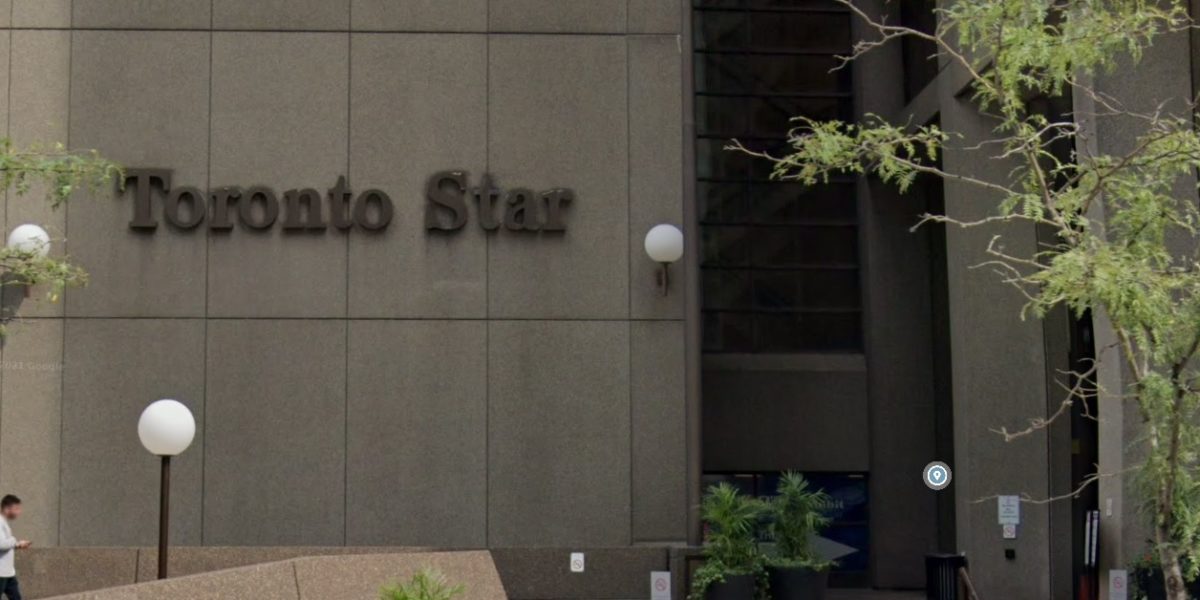The Toronto Star once sent Ernest Hemingway to cover war, Nathan Cohen to cover the arts, Peter C. Newman to cover politics, Milt Dunnell to cover sports, Michelle Landsberg to cover social justice and Gordon Sinclair and Duncan Macpherson to cover everyday life.
It’s fair to say those days of greatness are over and we will never see their like again. The owner of the newspaper they wrote for wants to abandon 131 years of proud independence and latch his destiny to a right-wing newspaper empire that has never made money and has probably fired more journalists than any owner in Canadian history.
There is much we do not know about the merger negotiations announced this week between Nordstar Capital, which owns the Star, and Postmedia Canada Corp., which owns just about every other big-city daily in the country including the right-wing National Post.
All we know for sure is the reason for it. Both sides agree that the Canadian newspaper industry is “at extreme risk” and facing “existential debt.”
The key to what happens now seems to be that debt: the debt that is drowning Postmedia and the debt or equity that Nordstar is willing to put up for auction.
Trading debt for equity is a clever financial survival ploy used by companies either facing bankruptcy or very close to it. It offers lenders an ownership stake in a company in return for wiping away its loans, or at least enough of them to free up their cash flow. Sometimes it works. The company gets its feet back underneath it and it recovers. But often, if the company’s business plan is flawed, it only opens the door to further debt, often at a higher interest rate. It’s like feeding bagloads of blood to a patient who’s bleeding out. It just delays the inevitable.
The Canadian newspaper industry is lying on that gurney, bleeding out before our eyes.
Look at Postmedia. It’s carrying $261 million in debt and pays more than $31 million a year to service that debt. That works out to 12 per cent a year in interest. Imagine having to pay that on a mortgage on your house.
The trouble is, Postmedia has already traded away debt for 98 percent control of its company–mainly to a U.S. hedge fund named Chatham Asset Management. There is not much more equity in the well.
Enter Nordstar, which Jordan Bitove stole debt-free for $61 million with his then-partner Paul Rivett in 2020. Those two later had a falling out, leaving Bitove, a businessman with no experience in newspapers, in sole control of The Star and its stable of community papers across Ontario. Under the merger proposal, a separate company would be set up to preserve the Star’s editorial independence but Bitove would only have 65 per cent control. Who might own the other 35 per cent is unknown at this point but it does raise a number of questions.
READ MORE: The suicide pact that might sink the Toronto Star
Are those who are lining up to get a piece of the largest newspaper in the country’s largest city the same investors who bid up the share price of Postmedia by 50 per cent the day before the merger talks were disclosed? Canada’s financial regulators might want to launch an insider trading investigation.
One hopes that the new ownership group of The Star is benign. The rest of the Nordstar empire–including dailies in Hamilton, Kitchener and Peterborough and the Metroland chain of 70 community papers across Ontario–would be thrown to the wolves. Postmedia has been closing such papers at a furious rate. It would be death watch time for the smaller communities that still enjoy local journalism.
It makes the drum- beating optimism of Bitove even more hollow. He said this week:
“By pooling resources and working more collaboratively, we can ensure that more Canadians have access to trusted journalism and quality reporting. This will strengthen our democracy and protect the fabrics of our country.”
BS.
Remember what happened in 2017, when The Star and Postmedia made their last newspaper deal? They swapped 41 community papers and closed all but four of them, creating local monopolies for themselves.
In fact, I wouldn’t believe anything key players in the newspaper industry say about serving democracy. In 2015, Postmedia purchased 175 Sun Media papers from Quebecor for $316 million and promised to keep separate newsrooms in cities where they owned two competing newspapers. (like Calgary where they owned both The Herald and Sun). The following year they broke that promise, cutting 90 jobs and merging newsrooms in four cities.
If we’re worried about preserving democracy, and we should be, it’s time for Ottawa to step in. After intensive lobbying from the newspaper industry, the federal government decided to invest more than $500 million a year in direct grants and tax incentives to prop up a dying industry run by dinosaurs blindly following an old playbook. It has intervened again with Bill C-18, controversial legislation that requires Facebook to pay news providers for sharing their content. Ottawa’s regulation of television and internet services is in need of reform and big-business players like Bell are making demands that would weaken democracy and the information necessary to sustain it.
Perhaps it’s time for another royal commission on news and information. The last one was more than 40 years ago, and the government did not listen. Now, with things so much worse, we need to give them another chance.



